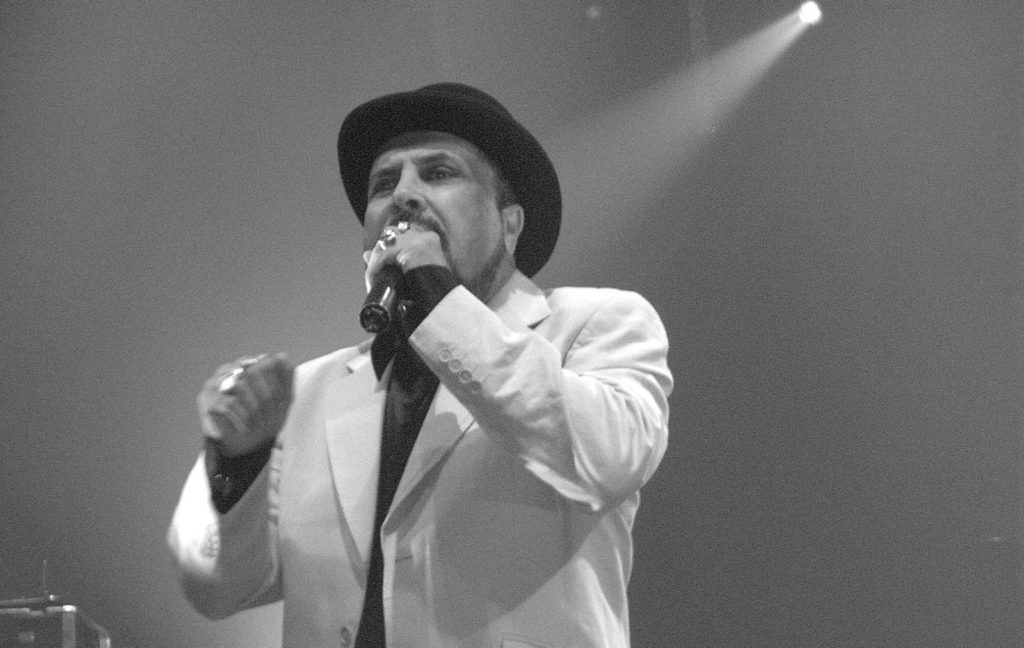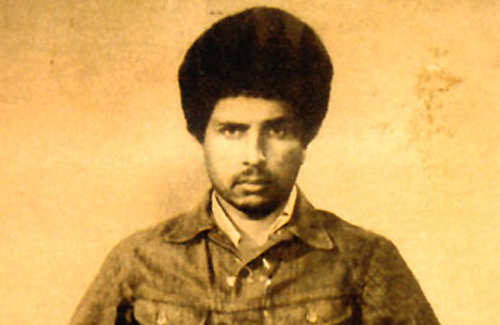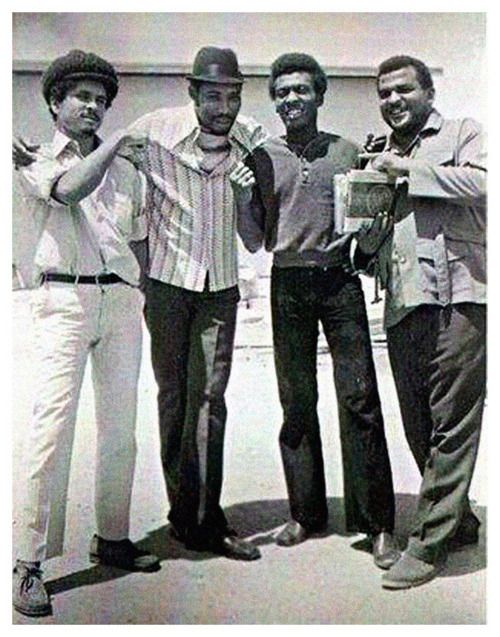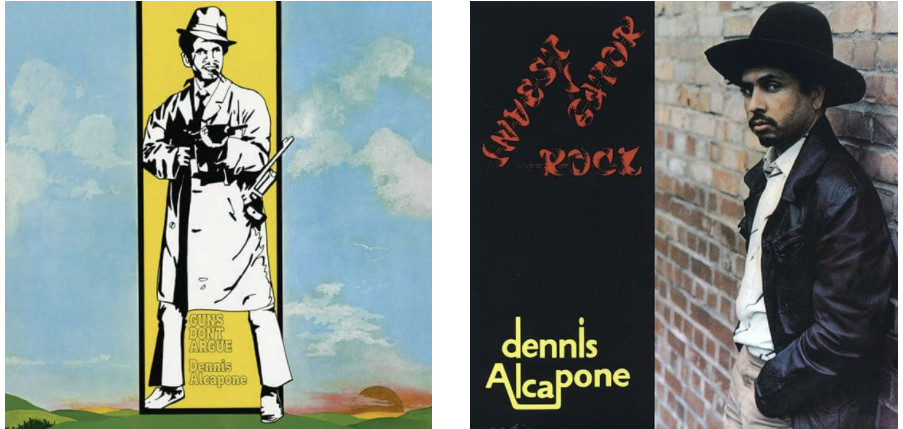In the early 1970s, Dennis Alcapone was one of the toasters that ruled Jamaica, alongside U-Roy and Big Youth. Crashing out of the sound systems and onto the airwaves like a tidal wave, these artists were responsible for bringing the art of deejaying to the forefront.
Born in Clarendon, Jamaica, on August 6, 1947, Dennis Smith started deejaying for the El Paso Hi-Fi in 1969. Influenced by U-Roy, his excellent DJ skills and ability to toast over the tracks made El Paso the leading sound system of the time. U-Roy was the first DJ to make records voicing over tracks, but Dennis’ skill and unique style challenged U-Roy’s dominance.
Dennis Smith’s unique singsong style immediately caught the public’s attention when he recorded his first singles. Producer Clement “Coxsone” Dodd was soon interested in working with him at Studio One. This is where the deejay changed his name to Dennis Alcapone. It was a nickname that had stuck with him since seeing the Al Capone gangster movie at the theatre with friends.
The Studio One producer was not happy with losing U-Roy to rival Duke Reid at Treasure Isle, and with U-Roy at the top of Jamaican charts, Dodd was determined to have Alcapone dethrone him. With the amount of material at Alcapone’s disposal thanks to the Studio One archives, he could seriously threaten U-Roy’s dominance. At the same time, he was making singles and hits with the youth producer Keith Hudson.
Every producer in town was knocking on the DJ’s door. In 1971, much to Dodd’s distress, Alcapone moved on to work with Bunny Lee for another clutch of hits: “Ripe Cherry” (a version of “Cherry Oh Baby”), “Horse and Buggy” (a version of “Mule Train”) and “Lorna Banana” (a duet with fellow DJ Prince Jazzbo).
But none had the impact of “Guns Don’t Argue”, a version of Eric Donaldson‘s “Love of the Common People”. This song single-handedly introduced gunplay into the toaster’s lyrical repertoire. Many of the singles cut with Lee were gathered up for 1971’s Guns Don’t Argue album, later reissued by Trojan Records, Jaguar Records and Radiation Roots.
Through the early 1970’s Dennis worked making over one hundred tracks and released three albums. His skills were highly prized. He worked with some of the great reggae producers, including ‘Coxsone’ Dodd, Lee Perry, Joe Gibbs, Prince Buster – and with musicians of the calibre of Dennis Brown, Augustus Pablo and Delroy Wilson. Alcapone toured through Guyana and the UK and won the Swing Magazine award for Best DJ.
In 1974, Alcapone relocated to London. Back home, in Jamaica, a wave of new young guns swept into the scene and onto the charts. While living in England, Dennis Alcapone continued to tour and work in Jamaica and, through the late 70’s worked on making albums for Sidney Crooks, Bunny Lee and Count Shelly.
Alcapone moved to the Third World label and, before the end of 1977, he recorded three albums for them: Dread Capone, Six Million Dollar Man, and the Bunny Lee-produced set Investigator Rock.
In the late 1980’s Dennis returned to touring, performing around the world. Throughout his career, Alcapone sang alongside all the Jamaican greats.
It is true to say that Dennis Alcapone is a living legend. His DJ skill, vocal talent and musicianship have earned him a well-deserved place in modern music history.
Sources:
Definite Records
ReggaeVille.com
Allmusic.com
Cover photo by: Ton1~commonswiki




